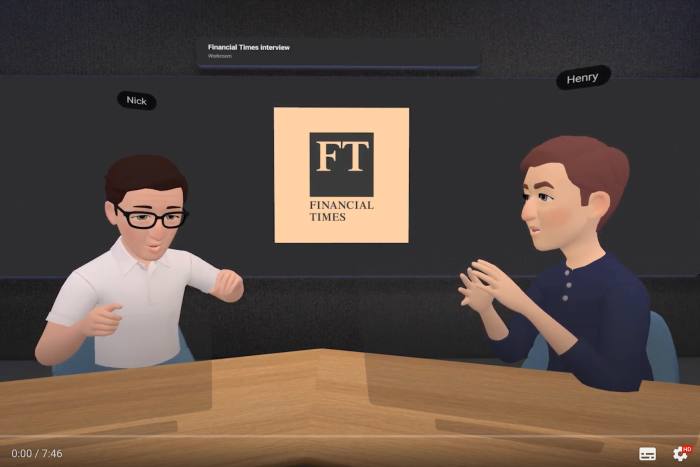The shifting sands of silicon shortages
This article is an on-site version of our #techFT newsletter. Sign up here to get the complete newsletter sent straight to your inbox every weekday
Tight chip supplies this year have also meant the severe restriction of mergers and acquisitions involving US semiconductor companies.
Dealogic says that after a record 2020, when deals worth $88.5bn were announced, 2021 has had M&A activity worth only $13.5bn, the lowest level since 2017.
The analytics company gives two reasons: the strong demand for chips has forced up the valuations of semi companies enough to deter acquirers. Prospective buyers also want to see growth, but capacity constraints are limiting that.
Dealogic’s figures do not include Entegris’s $6.5bn bid yesterday for its rival CMC Materials, with these US suppliers to the industry being chemicals groups that provide materials essential for embedding transistors on to silicon wafers. Lex says chipmakers have been consolidating to build up scale and their suppliers have to follow suit.
There is a puzzling aspect to the semi shortages that have wreaked havoc in industries from cars to consumer electronics these past two years. According to Martin Sandbu’s “Shortages, what shortages?” opinion piece: “In a short paper published a month ago, Daniel Rees and Phurichai Rungcharoenkitkul of the Bank for International Settlements showed that semiconductor exports from Taiwan and Korea in 2020 exceeded the volumes recorded in 2019, and 2021 exceeded 2020. Exports currently appear to be running at a good 30 per cent above two years ago. The BIS’s Hyun Song Shin has added that semiconductor sales in the US are much higher than in the years before the pandemic.”

Such increases have clearly not been enough to satisfy soaring demand, and the growing importance of chips to economic, security and technological advances has made them a strategic priority of governments.
Joe Miller reports from Dresden today on how Germany hopes “Silicon Saxony” — which accounts for one in every three chips made in Europe — will be at the heart of EU efforts to reduce the bloc’s dependence on Asian suppliers.
On Wednesday, India approved $10bn worth of subsidies to spur local manufacturing of semiconductors and display panels, hoping to make its smartphone makers less dependent on components from China, Thailand, Indonesia and Vietnam.
Meanwhile in Japan, the southwestern island of Kyushu has long been crucial to Japan’s once-mighty semiconductor industry, reports Nikkei Asia. A revival for “Silicon Island” could come from Taiwan Semiconductor Manufacturing Co building a $7bn chip plant with Sony at the crossroads of two big industries: cars and chips. The project is being heavily subsidised by the Japanese government.
With unprecedented levels of government money being poured into the sector globally and construction set to begin on around 30 new plants by the end of next year, there are inevitably fears of a chip glut down the road, says this week’s #techAsia newsletter. That cycle could begin in 2023, hitting prices and valuations and perhaps starting a new M&A boom.
The Internet of (Five) Things
1. China’s ‘brain control weaponry’
The US is placing China’s Academy of Military Medical Sciences and 11 institutes involved in biotech on an export blacklist for allegedly helping Beijing engage in repressing and surveilling Uyghurs. A senior official said the institutes were using biotech to help the Chinese military develop applications that included “brain control weaponry”. Separately, John Thornhill’s column this week looks at the ethics of neurotechnology, where brain-scanning devices might soon be able to read, and alter, people’s emotions and minds.
2. Reddit prepares for stock market listing
The social media platform at the centre of this year’s meme stock frenzy, via its r/WallStreetBets message board, is planning a stock market listing. At its last fundraising in August, Reddit was valued at $10bn, up from $6bn six months earlier.
Daily newsletter

#techFT brings you news, comment and analysis on the big companies, technologies and issues shaping this fastest moving of sectors from specialists based around the world. Click here to get #techFT in your inbox.
3. Byju’s in talks for record Spac deal
Byju’s, the Indian edtech start-up, is in talks to go public in the US by combining with a blank cheque company led by Michael Klein’s Churchill Capital, in a deal that would value the business at more than $40bn.
4. Investors challenge Big Tech concealment clauses
Seven of the largest US tech companies, including Alphabet, Amazon and Meta, are facing pressure to publish more information about their non-disclosure agreements in contracts, amid growing investor support for employee rights issues.
5. A trip into the metaverse with Nick Clegg
Instead of a meeting in Europe, Facebook’s defender-in-chief offered to speak to us in the metaverse, the immersive digital world hyped by parent company Meta as a successor to the internet. So Henry Mance donned a bulky virtual headset and logged in to a simulated meeting room. Watch their conversation here.
Forwarded from Sifted — the European start-up week
Polish cryptocurrency payments start-up Ramp this week announced a $52.7m funding round, just months after the company closed its $9m seed round. The rapid pace of fundraising comes on the back of 30x growth in transactions over the past year, as well as a tripling of its team in just the past six months. The deal is notable partly because it is the largest of its kind to come out of Poland. But it also highlights the ongoing hype around cryptocurrencies and non-fungible tokens (NFTs), as well as the potential for platforms that can enable their greater adoption. “We are at the very beginning of a very exciting moment for this space. I think 2022 is going to be pivotal for the entire [crypto] space, and the main theme will be actual use cases coming online,” Szymon Sypniewicz, Ramp co-founder and CEO, tells Sifted. “We’ve been waiting for it for many, many years.”
Elsewhere in European start-up news, US VC firm General Catalyst has opened up its first European office, following a trend kicked off by fellow American VC Sequoia last year. The firm is no stranger to Europe. It’s an investor in several of its biggest names — Deliveroo, Monzo, Cazoo, Grammarly and Hopin — but with this latest move, it’s hoping to get much closer to the hottest early-stage start-ups.
Tech tools — LG’s Lifestyle TVs
Ahead of the CES consumer electronics show next month, LG has been providing a sneak peek at its Lifestyle TV line-up. Resembling a canvas, the LG Objet TV (above) is an odd one. Pressing a button on the Remote raises or lowers a fabric cover so you can see the full extent of the 65in screen or just a partial view that shows a selection of functions. LG StanbyME (below) is a wireless 27in TV with a built-in battery, attached to a moveable stand with concealed wheels, that allows for three hours of viewing before recharging. No details yet on pricing or availability for these two.


